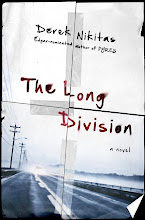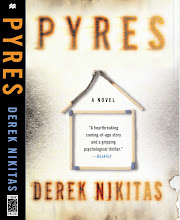My last post on Game of Thrones and all my recent,
unwritten musings on the masterful concluding chapters of Breaking Bad have got me thinking again about Madame Bovary, which is a pretty weird thing to say, I know.
But I’ve been teaching Bovary again and I’m struck by how the
novel continues to compel my vested interested despite its surface
near-plotlessness. Is it just that a
novel like Bovary and a novel like Game of Thrones fire entirely different
synapses in the brain, and no reconciliation between their pleasures can be
found?
I don’t know.
One thing is certain. Flaubert is not a good storyteller.
In Flaubert’s letters from during
the writing of Bovary, he admits his
disinterest in plot—in fact, he deliberately sets out to write a book “about
nothing,” focusing on something other than dynamic plot events. Certainly, Bovary is not plotless. It’s
a familiar adultery-and-repercussions narrative. But Flaubert seems to suggest that explosive plot
events would have a detrimental effect on his aim to explore the recesses of
his characters’ psyches.
If we push the metaphor a bit
further, an explosive plot event is kind of like a gun going off. It’s exciting, it makes your heart leap, but the
fraught anticipation of it is distracting, and it leaves you deaf to any
subtler sounds for several minutes thereafter.
I don’t believe that’s always the
case, but for Flaubert and Bovary, it
may be true.
So, quite intentionally, Flaubert
was not a good storyteller. Not if we mean
those classic Aristotelian virtues of compelling events, action-orientated
characters, surprise reversals and revelations, suspense, momentum. These are the elements we typically note as
"good storytelling," and what we find in abundance with an author like
George R.R. Martin. These are the age-old elements of epic and romance,
the very “cheap thrills” that Flaubert was satirizing in Bovary through Emma’s delusions.
If we look at the history of the
development of “the novel,” it’s clear that all the developments and innovations
since its inception have been movements away
from those elements we tend to cite as “good storytelling.” In a way, good storytelling was already
established before 1700, so every innovation since has been in service of something else.
Mostly, the something else was efforts to make the fictional world seem more
life-like, and in many cases, those efforts were antithetical to "good
storytelling." Just for example, surprise reversals (he’s really a
ghost! it’s his wife’s head in the box!)
are fun storytelling, but they are contrivances, or at least a rarity, because
they don't happen often in reality. It is "less realistic" to
depict them in fiction.
But good storytelling is obviously
only one factor in what can make a narrative interesting. Flaubert was
deliberately uninterested in storytelling, choosing rather to explore
microscopically the foibles of humanity, Emma’s psychological states, the
distance between two or more people's psychological experience of the same
event, details so precise and so evocative that we are shocked by their
appearance, etc.
For example, Emma Bovary has an
affair with a young man named Leon, and falls into what she thinks is “love”
with him. Flaubert writes, "She was
in love with Leon, and she wanted to be
alone as to delight more comfortably in his image. The sight of him in
person disturbed the sensual pleasure of this meditation" (the italics
are mine, and the translation is Lydia Davis’).
This is clearly an example of
interiority, an insight into Emma’s mind.
It’s not a surprise plot point, right?
Well…. there are macro-level plot
surprises. We expect Luke Skywalker to
vanquish Darth Vader and avenge his father but (twist), Vader reveals he is Luke's father and cuts off his hand! We expect Jaime to weasel his way out of a
situation like every time before but (twist),
a very Luke-like change of fortune happens to him, too! These are the explosive gunshots of
narrative.
But I’d suggest there are also these exquisite micro-level surprises,
sudden insights. We understand that Emma
loves Leon in her own way and, as a consequence, would want to spend time with
him, but (twist) she’d rather spend
time alone with her thoughts about him.
I think the macro and micro
twists have fundamentally the same effect.
Both are surprising because they give us
insight into characters’ values. Jaime’s
fate wouldn’t shock us if we didn’t see the multifaceted irony in his loss and
the circumstances surrounding it. Luke’s
fate wouldn’t shock us if we didn’t realize how drastically and ironically it
renegotiates his personal journey. And
this insight into Emma wouldn’t hit us if it didn’t drive an ironic wedge
between the appearance and reality of her character, if it didn’t poke a hole
in what we understand “love” to mean for Emma.
In both cases you’re experiencing
what Aristotle called astonishment,
which I would define as the reader’s reaction to the surprise appearance of
irony.
Another brief example arrives in
Emma’s first dalliance with her other lover, Rodolphe. They have just made love or are still making
love—it’s deliberately unclear—and we’re immersed in Emma’s orgasmic flush of
words and images (Davis translation again):
“…her blood flowing through her
flesh like a river of milk. Then, from
far away beyond the woods, on the other hills, she heard a vague, prolonged
cry, a voice that lingered, and she listened to it in silence as it lost itself
like a kind of music in the last vibrations in her tingling nerves. Rodolphe, a cigar between his teeth, was mending
with his penknife one of the bridles, which had broken.”
The first “plot twist” here is again
about ironic insight. This is the most
alive and present Emma has been in the book so far, and yet she’s divorcing herself
from her own orgasmic scream, attributing it to some animal “far away beyond
the woods.” The second plot twist is the
sudden juxtaposition between Emma’s
lyrical, ecstatic impression of this event and Rodolphe’s complete dismissal of
it.
The jump cut is amazing: she’s
still lost in reveries while he’s back to taking care of a mundane task. The ironic gulf opens up, and we see the
sharp contrast between their characters.
We’re astonished by this surprise appearance of irony (dramatic irony in this case—we’ve been
shown truths about Emma and her relationship with Rodolphe that she does not
yet realize).
Admittedly, big plot points hit
harder than these precise character insights, but in many cases big ironic plot
points hit like blunt instruments, dull and numbing. This is not always the case, as with most big
plot points in Breaking Bad, which
have the virtue of being sharp and explosive.
Or the Game of Thrones plot
point I wrote about in my last post, which is big, but has a dozen exquisite
micro-astonishing ironies swirling around it.
“Micro-astonishments” have the
virtue of affecting the reader in smaller ways—often sharper, more
precise. They also strike more deeply, I think, because we recognize our
own personal foibles of character. They
open up hidden truths in ourselves that we generally do not wish to confront
(let’s face it, most ironic recognitions in fiction are not happy ones).
They sting and they resonate.
The other virtue of
micro-astonishing twists of the type we find in Madame Bovary is that there are hundreds of them, several per page,
not just the ones at major plot junctures.
You get way more astonishments for your time with a book like Bovary, and none of them are cheap.
But, yes, for micro-astonishment
to work, you have to read more slowly, more carefully. If we read too
bluntly for "stuff happening" on a surface or situational level,
we'll skip over all Flaubert's sharp psychological insights, his dozens and
dozens of sinister juxtapositions, his evocative details that feel both frozen in
time and fully alive at once, or, as James Wood puts it in How Fiction Works, “each detail is almost frozen in its gel of
chosenness.”
It's easier to skip over the
small, precise insights precisely because they're subtle, because we've been
conditioned to read in search of the big plot points, propelling ourselves from
one to the next, never paying attention to the fact that we're being offered
one gem after another, if we allow ourselves the focused vision to see them.
But if we slow down with a novel
like Madame Bovary, we get the same
kind of pleasure of astonishment in kind
as we do from the big “page-turners.” The pleasure is only different in degree and number. More subtle, more
exacting, and far more numerous.



No comments:
Post a Comment